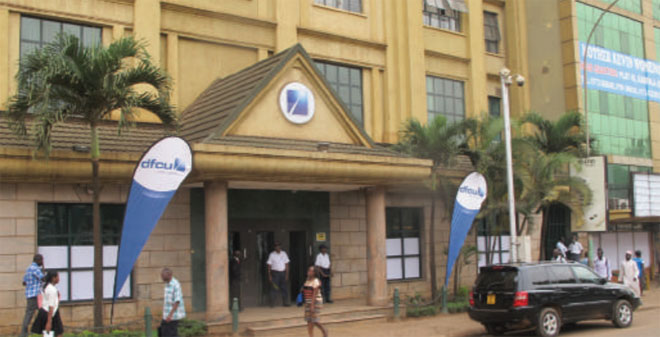Prominent businessman Dr. Sudhir Ruparelia has vowed to challenge a recent High Court ruling in favor of Dfcu Bank, which temporarily halted enforcement of over UGX 8 billion in rent arrears claimed by his real estate firm, Crane Management Services (CMS).
Last week, the High Court issued a stay of execution, pausing the earlier enforcement order that had directed Dfcu to pay CMS the said amount for rent accrued from multiple properties occupied by the bank.
The properties in question are part of the portfolio previously associated with Crane Bank, which was controversially taken over by Dfcu in 2017 following regulatory intervention.
Following the ruling, Dr. Ruparelia, Chairman of the Ruparelia Group, responded to the development in an exclusive interview with this publication.
“It’s good they acknowledge it’s a temporary ‘victory’. We shall battle at the Court of Appeal,” Sudhir said, affirming his confidence in the next phase of legal proceedings.
Background to the Dispute
The legal standoff stems from Dfcu Bank’s acquisition of selected assets and liabilities of Crane Bank Ltd in 2017. As part of that transaction, Dfcu assumed occupancy of several commercial properties owned by CMS, where its bank branches continue to operate.
However, CMS accused Dfcu of failing to honour the rental obligations associated with those premises. In 2022, CMS filed a lawsuit seeking recovery of unpaid rent, which had accumulated to over UGX 8 billion by that time.
In an earlier decision, the High Court ruled in CMS’s favour and granted an enforcement order to compel Dfcu to settle the arrears.
The bank subsequently appealed the ruling and requested a stay of execution—a request that has now been granted, pausing CMS’s ability to recover the funds until the appeal is concluded.
Legal and Commercial Ramifications
This case has attracted significant attention from legal experts, financial analysts, and the business community, as it touches on broader issues concerning asset transfer obligations, tenancy agreements, and post-acquisition liabilities in Uganda’s banking sector.
While Dfcu Bank has so far remained silent on the matter, observers note that the institution is likely preparing for a rigorous defense at the appellate level. Meanwhile, Sudhir remains adamant that the legal fight is far from over.
“We are ready for the Court of Appeal. Justice must prevail,” he said.
A Battle to Watch
With both sides preparing for a prolonged legal showdown, the case promises to shape how future commercial lease agreements are handled in situations involving bank takeovers and asset restructuring. The outcome could set a critical precedent for dispute resolution between landlords and financial institutions in Uganda.
As the matter heads to the Court of Appeal, the business community will be watching closely to see how one of the country’s most high-profile commercial legal battles unfolds.
22343 total views , 1 views today
























